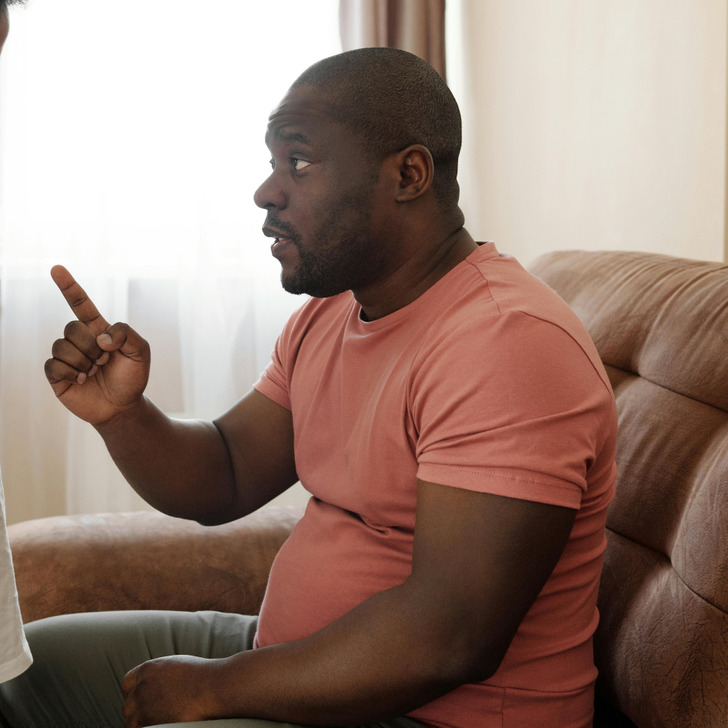Whoever is writing these stories should try NOT TO DUPLICATE THEM. I just read the EXACT SAME ONE only the teenager was a boy. Everything else is practically identical. They are fun reads but they get rehashed with MINOR DIFFERENCES too many times.
My Stepdaughter Told Me I’m Not Her Real Dad—So I Gave Her a Wake-Up Call She’ll Never Forget
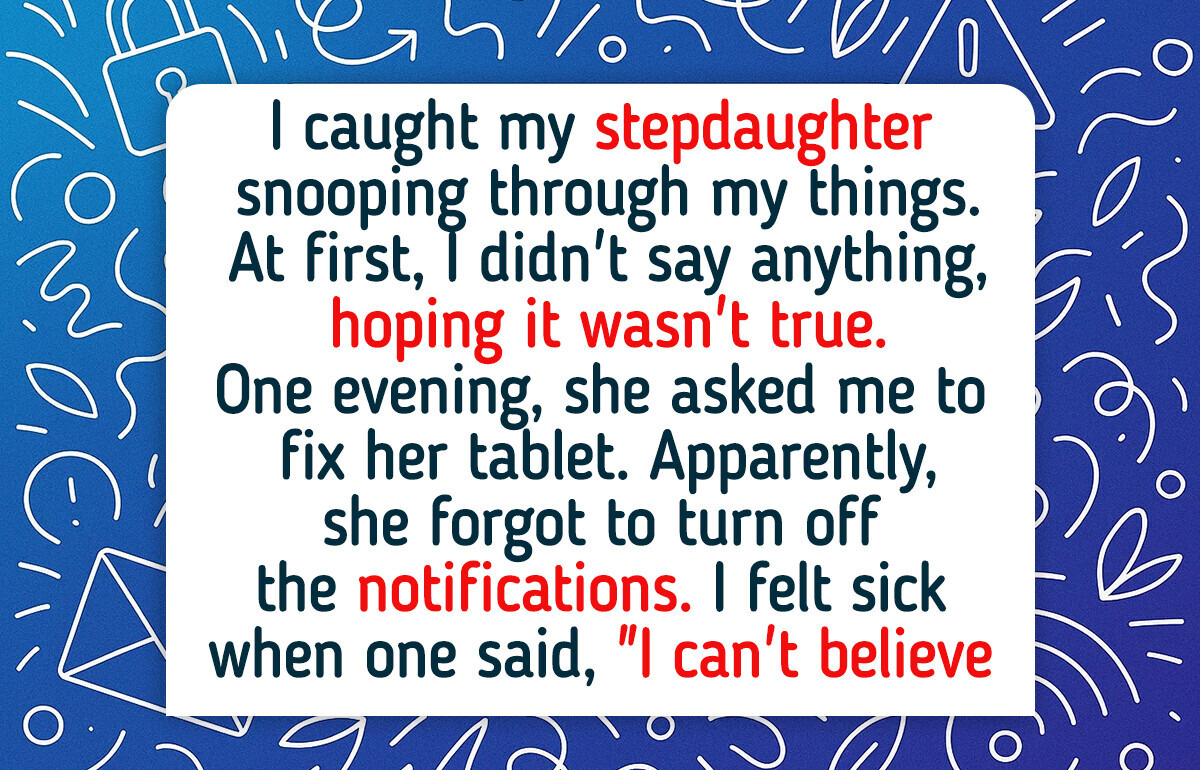
Becoming a stepparent is a choice rooted in love. You marry someone knowing that their child will become part of your life, your home, and your family. You hope to guide them, support them, and be someone they can trust. But what happens when that trust is tested and boundaries are crossed?
One of our readers faced exactly that dilemma. He reached out, unsure if her reaction made him the villain or simply a parent who had finally reached his limit.
Here’s his story:
I’ve been raising my stepdaughter, Emma, for a few years now. She’s sixteen, smart and sharp, but sometimes impossible to read. At first, I tried not to take her sarcasm personally. I knew trust would take time and that she needed to adjust to having me in her life.
Small signs started to add up.
Lately, I noticed my papers in the office were shuffled around. My laptop, which I always keep locked, was left open. Small things from my desk moved or disappeared. I tried to brush it off, but the pattern kept repeating, and I started to worry.
This wasn’t forgetfulness.
It became clear someone had been going through my things. I didn’t want to believe it was Emma. But it wasn’t my wife, and no one else had access to the house. I felt stuck between wanting to confront her and hoping it wasn’t true.
The tablet incident changed everything.
One evening, Emma asked me to fix his tablet, saying it wasn’t turning on. I agreed, but while checking it, the screen lit up and a message from one of her friends appeared. It said: “Can’t believe you’ve been ordering all that stuff with his account without him finding out, lol.” I couldn’t believe what I was seeing. Everything I had suspected was suddenly confirmed in black and white.
Confrontation met with defiance.
I asked her what it meant. She rolled her eyes and said, “You’re not my real dad. Why do you care? Now you don’t even want to spend money on me?” That was it. My patience ran out. I realized I couldn’t let it slide any longer.
I took action.
Later that night, while she was asleep, I reopened the conversation on her tablet. I took a screenshot of the message and sent it to my wife with a short note: “I hope you finally see what’s been happening behind our backs.” I felt guilty, but I knew it was necessary.
Consequences finally arrived.
My wife was furious. Emma couldn’t deny it and was grounded, missing the weekend plans she had been looking forward to for weeks. Finally, she faced consequences for her actions.
The aftermath is complicated.
Since then, Emma hasn’t spoken to me and avoids me whenever she can. Some days I feel guilty, wondering if I could have handled it differently. But another part of me knows I did the right thing and that holding her accountable was necessary.
Here’s our advice:
- Sixteen is old enough to understand right and wrong: Teenagers at sixteen are capable of recognizing that some choices are unacceptable. These years are critical for helping them see that their actions have consequences. Being dishonest or breaking trust isn’t just a small mistake; it’s an opportunity for parents and stepparents to guide them toward understanding responsibility and ethical behavior.
- Holding teens accountable builds character: When teenagers face clear expectations and are required to take ownership of their mistakes, they begin to connect their behavior with real outcomes. Over time, this teaches them to think ahead, consider others, and make decisions that are not purely self-serving. Accountability helps them grow into responsible adults.
- Being a stepparent comes with unique challenges. Loving and guiding a child who may not immediately accept you is difficult. It demands patience, resilience, and a willingness to keep trying, even when met with resistance, rejection, or silence. Stepparenting requires both strength and compassion.
- True growth comes through honest dialogue. Conversations with your stepchild are about more than enforcing rules. They’re about making space for them to be heard. When you listen without judgment and create a safe environment, even the most withdrawn teen can start to open up. Building trust takes time, but consistent, empathetic communication is how it begins.
Blended families face unique challenges. Here’s another story of a stepparent who had to confront the truth when his stepchildren wouldn’t accept him.
Comments
Actions have consequences, I personally wouldn’t trust her again,
I would contest the charges on your credit card and press charges by filing a police report. She is old enough to know that is stealing. It's just plain wrong and there need to be major consequences.
Don't feel guilty.
Related Reads
My Sister Tried to Turn Our Family Cabin Into Her Free Resort, So I Changed the Rules
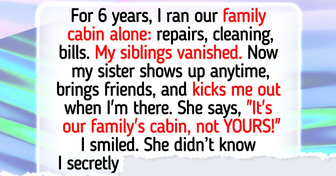
I Refuse to Smile While My Coworker Makes $20K More
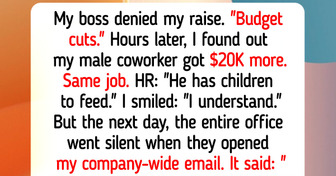
15 Stories That Prove Some Memories Are Impossible to Delete

I Refuse to Help My Pregnant Sister, and I Don’t Feel Guilty

I Refuse to Return My Late Colleague’s Paycheck, Now His Widow Is Furious

My MIL Tried to Humiliate Me at the Altar—By Morning, She Wasn’t Laughing

My Manager Tried to Destroy My Career but a Work Argument Showed Them the Truth
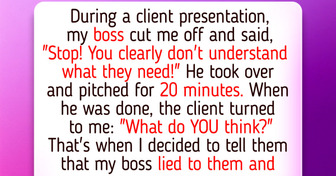
I Charged My MIL for Christmas Dinner, Even Though She’s Always Helped Us for Free

I Won’t Sacrifice My Last Good Years Because My Son Refuses to Grow Up
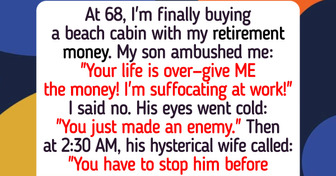
I Turned Down a Promotion and Got Fired—My Revenge Was Brutal

20+ Moments That Prove Quiet Kindness Is the Only Language Everyone Speaks
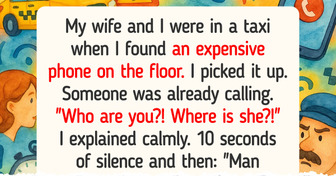
10 Hospital Workers Who Prove Kind Heart Is a Powerful Medicine






